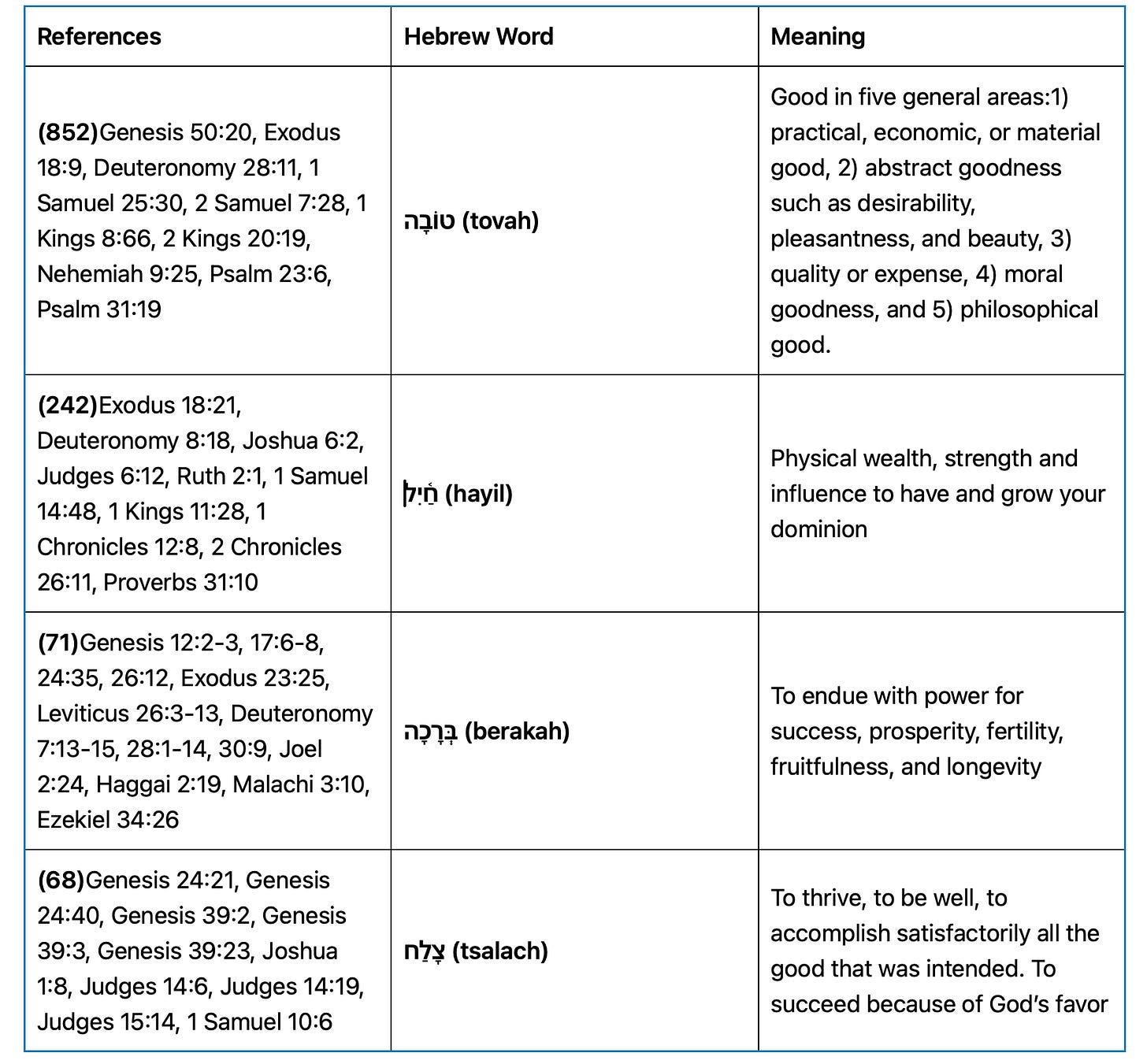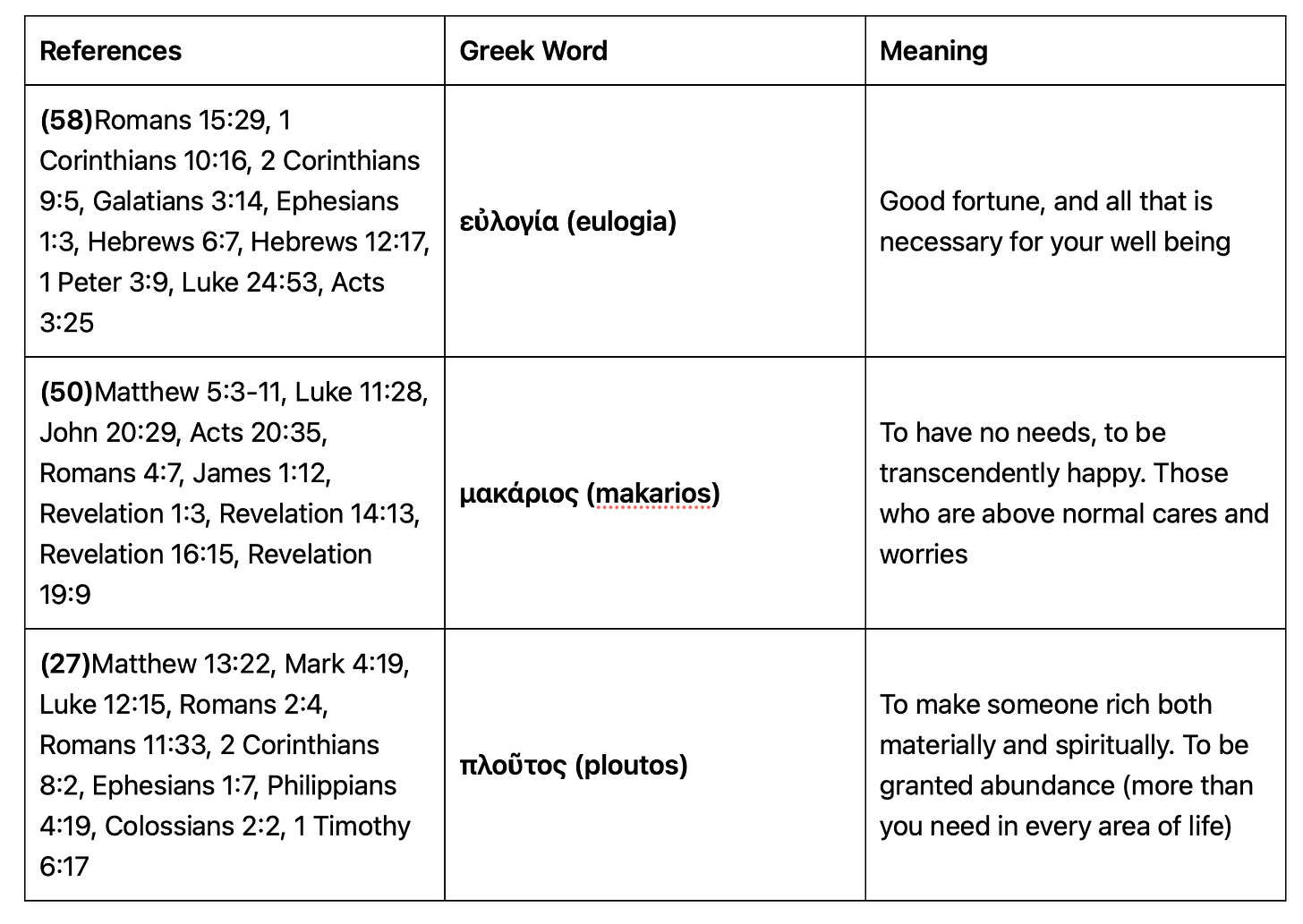Back to Socrates, and the importance of definitions. Let’s start with a question. I once heard Jim Baker, a pastor and author of When Heaven Invades Your Finances give this thought: “If God had a plan for your money what would it be?:
Less than enough
Just enough
More than enough” (Source)
Think about your answer to this question. Don’t just think about it financially though. if God had a plan for your health emotionally, mentally, physically and spiritually, would he want you to have just enough, less than, or more than enough? The way you answer that question will determine how you think about prosperity in every aspect of your life. Does God want you to struggle with less than enough? Does He want you to barely get by? Or does He want you to have more than enough in every area of your life? What do you believe?
As we consider that question, let’s return to the definition of prosperity. The Bible talks about finances and money more than it talks about love, sin, faith and even salvation. Here’s a list of the top 10 most mentioned topics in Scripture according to my own research:
God’s Sovereignty and Glory // 12,052+ mentions
Prophecy – 28% of Scripture contains prophecy // 8,352+ mentions
Money and Possessions (Prosperity) // 2,300+ mentions
Justice and Righteousness – “Justice” appears 420+ times, “Righteous” appears 500+ times // 920+ mentions
Law and Commandments - 20% of the Pentateuch (first 5 books of the Old Testament), 613 commandments, also referenced 220+ times // 823+ mentions
Sin and Redemption // 750+ mentions
Worship and Sacrifice - 400+ sacrificial references, “Praise” mentioned 338 times // 738+ mentions
Covenants and Divine Promises // 359+ mentions
Faith and Obedience – “Believe” occurs 200+ times, “Obey” appears 170+ times // 370+ mentions
The Kingdom of God // 126+ mentions
Money and possessions are the third most mentioned topic in Scripture after God, and prophecy. More than faith, more than love and more than salvation. The Old Testament law has more laws about money than it does anything else. Why would the Torah had more rules about money than anything else? God seems to care about money and possessions a lot. A lot more than we may think that He does.
Let’s look at how the Old Testament defines prosperity.
There are four main words for prosperity used in the Old Testament. You can see them listed in order of mention in this table. These aren’t all the words used in the Old Testament, just the top four. Prosperity is mentioned a lot. Overwhelmingly, the Old Testament mentions not just spiritual wealth and prosperity, but physical prosperity, including, but not limited to, financial prosperity.
How does the New Testament define prosperity?
In both the Old and New Testaments, the words God uses for prosperity are not solely spiritual. They are practical. If you read through each of these verses, you will see them in their original context which includes more mentions of earthly wealth and prosperity than wealth in a philosophical or spiritual sense. This contradicts what many of us have heard, and even been taught. Prosperity in God’s Kingdom clearly includes material wealth. It is pretty clear that God intends for us to have more than what we need in every area of our life. Emotionally, mentally, spiritually, physically. And also financially. This is God’s definition of prosperity. This probably challenges your theology quite a bit. God intends to always challenge your theology. So, go study for yourself and see how God defines prosperity. And then see how that stacks up with your answer to the question at the beginning of this post.


